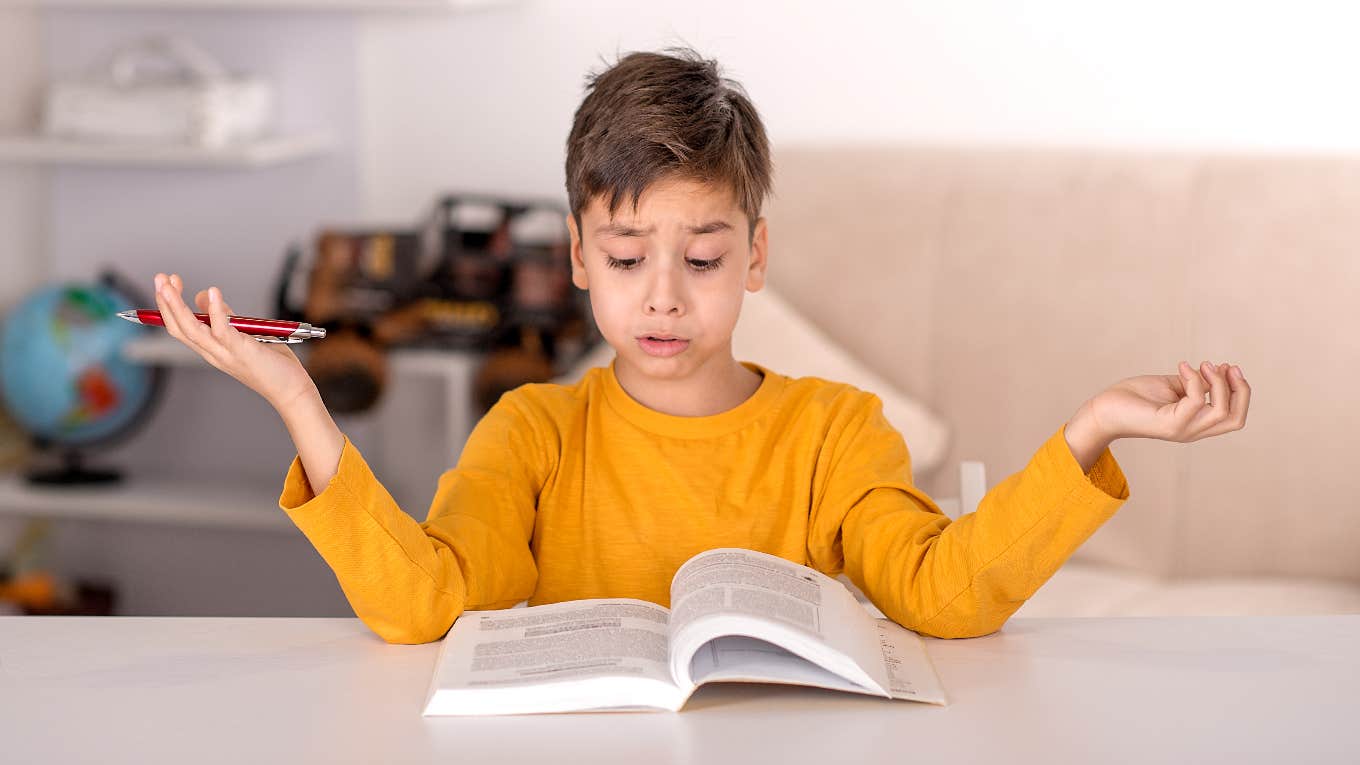Teacher Says Kids Can't Read Or Think Critically Because Adults Can't Either — 'Adults Are Proof The System Doesn't Work'
How can we expect children to do what the adults in their lives can't?
 RozochkaIvn | Shutterstock
RozochkaIvn | Shutterstock There's been a lot of talk about children's inability to read or think critically nowadays. Many people blame the increased use of technology and AI. Others point fingers at teachers and our education system at large.
Mrs. Eva, a content creator and teaching coach, got to the heart of the matter in a recent TikTok. "The kids can't read. The kids can't write. The kids can't do this," she said. "Neither can the adults." And if grown-ups are struggling to read critically or think analytically, how can we expect younger generations to succeed?
The teacher says kids can’t read or think critically because adults can’t either.
Mrs. Eva highlighted the perpetual cycle of uncritical thinking occurring in the United States. "We’re expecting children to do things that adults can’t even do," she said.
"We're expecting children to have deductive reasoning. We're expecting children to have basic levels of respect. We're expecting children to be able to operate and engage within the system," she continued, “when we have millions and millions and millions of adults as proof that it doesn't work."
She said that the people in power don't have the skills that we want the children to learn.
"The people who are in the positions of power don't have the skills that we want the children to get," Mrs. Eva said. "And they also don't benefit from the skills that we want children to get.”
Those in power prioritize profit over true student success. They would rather pass students who can't read than lose funding. Standardized testing, Mrs. Eva said, is a primary example.
“We let them make money off of standardized exams that don't assess students on the things that are actually gonna help them be successful," she noted. "And then we yell at the children for not benefiting from a system that doesn't work for them and hasn't worked for them continuously."
Education is political.
The fact of the matter is that education is inherently political. For one, access to quality education is deeply influenced by socioeconomic status, which often correlates with race.
For example, The Education Trust found that schools with higher populations of Black and Hispanic students receive about $2,700 less per student in funding than schools serving mostly white students. In a district with 5,000 students, this means $13.5 million in missing resources.
This too perpetuates a cycle that harms students and adults alike. Education should empower individuals to think critically, solve problems, and engage meaningfully with the world, but when it’s structured to prioritize profit over actual learning, it’s clear that something needs to change.
Sylvia Ojeda is an author who has over a decade of experience writing novels and screenplays. She covers self-help, relationships, culture, and human interest topics.

